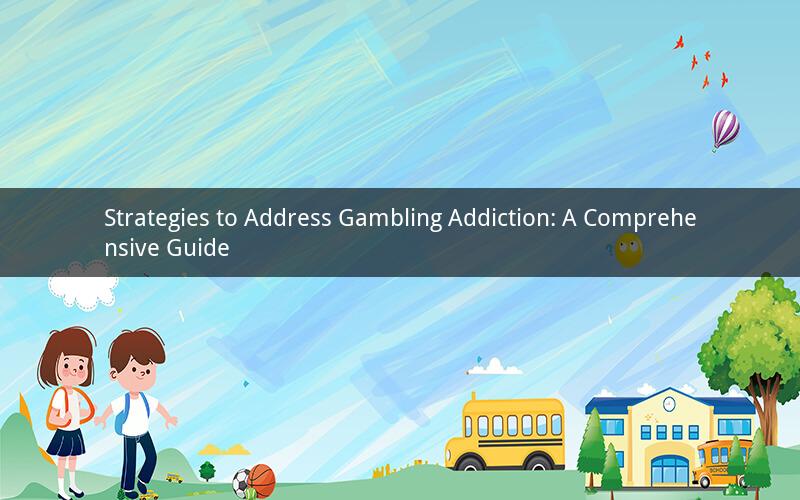
Gambling addiction is a serious issue that affects individuals, families, and society as a whole. Recognizing the signs of a gambling problem and taking appropriate action is crucial in helping someone overcome this addiction. In this article, we will explore various strategies to address gambling addiction and provide practical tips for those struggling with this issue.
1. Understanding the Basics of Gambling Addiction
Gambling addiction, also known as compulsive gambling, is characterized by an uncontrollable urge to gamble, despite the negative consequences it may cause. This addiction can lead to financial, emotional, and social problems, making it essential to address it promptly.
1.1 Recognizing the Signs of Gambling Addiction
To help someone struggling with gambling addiction, it is essential to recognize the signs and symptoms. These may include:
- Secretive behavior: Hiding gambling activities or lying about the extent of their gambling problem.
- Preoccupation with gambling: Constantly thinking about gambling, planning future bets, or reliving past gambling experiences.
- Increased spending: Borrowing money, selling possessions, or taking on excessive debt to fund gambling habits.
- Failed attempts to stop: Repeatedly trying to stop gambling but failing to do so.
- Neglecting responsibilities: Ignoring work, family, and personal commitments due to gambling.
1.2 Understanding the Causes of Gambling Addiction
Several factors can contribute to the development of a gambling addiction, including:
- Genetic predisposition: Research suggests that certain genetic factors may make individuals more susceptible to developing gambling addiction.
- Psychological factors: Individuals with low self-esteem, depression, or anxiety may turn to gambling as a form of escapism or to relieve negative emotions.
- Social and environmental factors: Easy access to gambling venues, exposure to gambling advertisements, and social pressure can all contribute to the development of an addiction.
2. Strategies to Address Gambling Addiction
Addressing gambling addiction requires a multi-faceted approach that combines support, treatment, and self-help strategies. Here are some effective methods to help someone overcome this addiction:
2.1 Seeking Professional Help
Professional help is crucial for individuals struggling with gambling addiction. Therapists, counselors, and addiction specialists can provide tailored treatment plans and support throughout the recovery process. Here are some treatment options:
- Cognitive-behavioral therapy (CBT): This therapy helps individuals identify and change negative thought patterns associated with gambling.
- Contingency management: This approach uses rewards to reinforce positive behavior and reduce gambling.
- Family therapy: Family therapy can help address the impact of gambling addiction on loved ones and promote family healing.
- Medication: Some individuals may benefit from medication to treat underlying mental health issues contributing to their addiction.
2.2 Support Groups and Peer Support
Support groups, such as Gamblers Anonymous, provide a safe and supportive environment for individuals struggling with gambling addiction. Peer support can be invaluable in providing encouragement, sharing experiences, and learning from others' journeys to recovery.
2.3 Developing Coping Skills
Learning new coping skills can help individuals manage the stress, anxiety, and emotions that may trigger their gambling urge. Here are some effective coping strategies:
- Exercise: Regular physical activity can improve mood and reduce stress.
- Relaxation techniques: Practices such as meditation, deep breathing, and yoga can help calm the mind and reduce anxiety.
- Hobbies and interests: Engaging in activities outside of gambling can provide a sense of fulfillment and purpose.
- Setting goals: Establishing personal goals and celebrating achievements can help maintain motivation and focus on recovery.
2.4 Creating a Supportive Environment
Creating a supportive environment is crucial in helping someone overcome gambling addiction. Here are some ways to foster a supportive environment:
- Communicate openly: Encourage open and honest communication with friends, family, and loved ones.
- Avoid triggering situations: Stay away from gambling venues, advertisements, and other sources of temptation.
- Seek understanding: Educate yourself and others about gambling addiction to reduce stigma and promote empathy.
3. Frequently Asked Questions (FAQs) about Gambling Addiction
Q1: How can I tell if someone has a gambling addiction?
A1: Look for signs such as secretive behavior, preoccupation with gambling, increased spending, failed attempts to stop, and neglecting responsibilities.
Q2: Is there a cure for gambling addiction?
A2: There is no one-size-fits-all cure for gambling addiction, but with appropriate treatment and support, individuals can overcome this addiction and lead a healthier, more fulfilling life.
Q3: Can medication help treat gambling addiction?
A3: Medication may be used in conjunction with therapy to treat underlying mental health issues contributing to gambling addiction.
Q4: How can I support someone with a gambling addiction?
A4: Offer empathy, patience, and understanding. Encourage them to seek professional help, attend support groups, and develop coping skills. Create a supportive environment that fosters their recovery.
Q5: Will my loved one ever be able to gamble again?
A5: Recovery from gambling addiction is a lifelong process. While individuals can learn to manage their addiction and engage in controlled gambling, they must remain vigilant and continue to practice healthy coping strategies.
In conclusion, addressing gambling addiction requires a combination of professional help, support, and self-help strategies. By recognizing the signs of addiction, seeking appropriate treatment, and fostering a supportive environment, individuals can overcome this challenging issue and move towards a healthier, more fulfilling life.